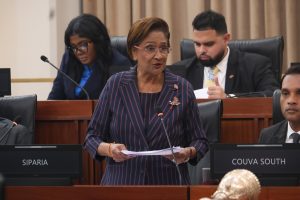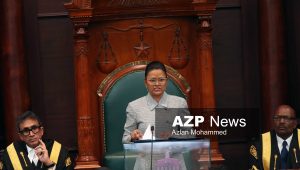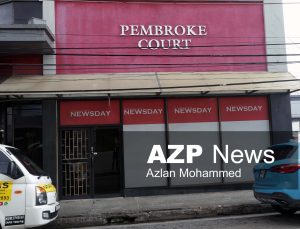THE Trinidad and Tobago Petroleum Dealers’ Association (PDA) is calling for an increase in the margins of the revenue its members are allowed to earn at the pump.
This after some of the UNIPET gas stations closed operations on Tuesday saying that it needed to scale back on operations due to high operating costs.
In a statement on Tuesday, UNIPET stated, “In an effort to reduce our operating costs, UNIPET and some members of the Petroleum Dealers Association (PDA) cut back their operations today with gas stations scheduled to re-open on Wednesday October 29 at 6 a.m. This is in an attempt to trim operating costs which have been severely impinged by the Regulator not providing sustainable margins to the industry.”
It added: “Non-UNIPET stations are able to approach the regulator to make up any shortfall in operating cost they may experience but as independent operators, there is no coverage for our shortfall and we are left with no option but to reduce our operations. We sincerely apologize to our customers but are left with no other options. The future viability of the liquid petroleum industry is in the hands of the regulator who has all the information with regard to the changes that are necessary to make the model sustainable.”
UNIPET service stations affected on Tuesday were Santa Cruz, Charlieville, Freeport, Cocorite, Chaguanas and Couva.
And PDA in a release stated, “Most of our members operate gas stations with Supply Agreements with the Trinidad & Tobago National Petroleum Marketing Company Limited (NPMC).
“Under these agreements, NPMC Dealers are not permitted to close the sites.
“While we fully understand and support UNIPET’s attempts to have regularised margins, we expect that all gas stations will be under considerable strain for the duration of this action and ask the motoring public to understand the constraints under which we try to make fuel available to the public.”
It added: “Daily, the Petroleum Dealers are faced with the financial limitations of operating with unsustainable margins.
“Our expenses are greater than our income and while we are continuously taking measures to reduce expenditure, the model itself is unsustainable.
“The situation is that we can no longer pay for fuel on delivery, so we are forced to take fuel only when we have the funds to pay for it.
“It means that sometimes we will not be able to supply product to our customers. It also means that some sites will be forced to reduce their operating hours and staff compliments. Most NPMC Dealers earn around $2.50 for every $100.00 fuel sale by cash, and around $1.10 for every $100.00 sale by electronic cards. From this, they are expected to pay all their operating expenses.”
And the Paria Fuel Trading Company said there was no issue with the supply of fuels to gas stations across the country.
![]()













